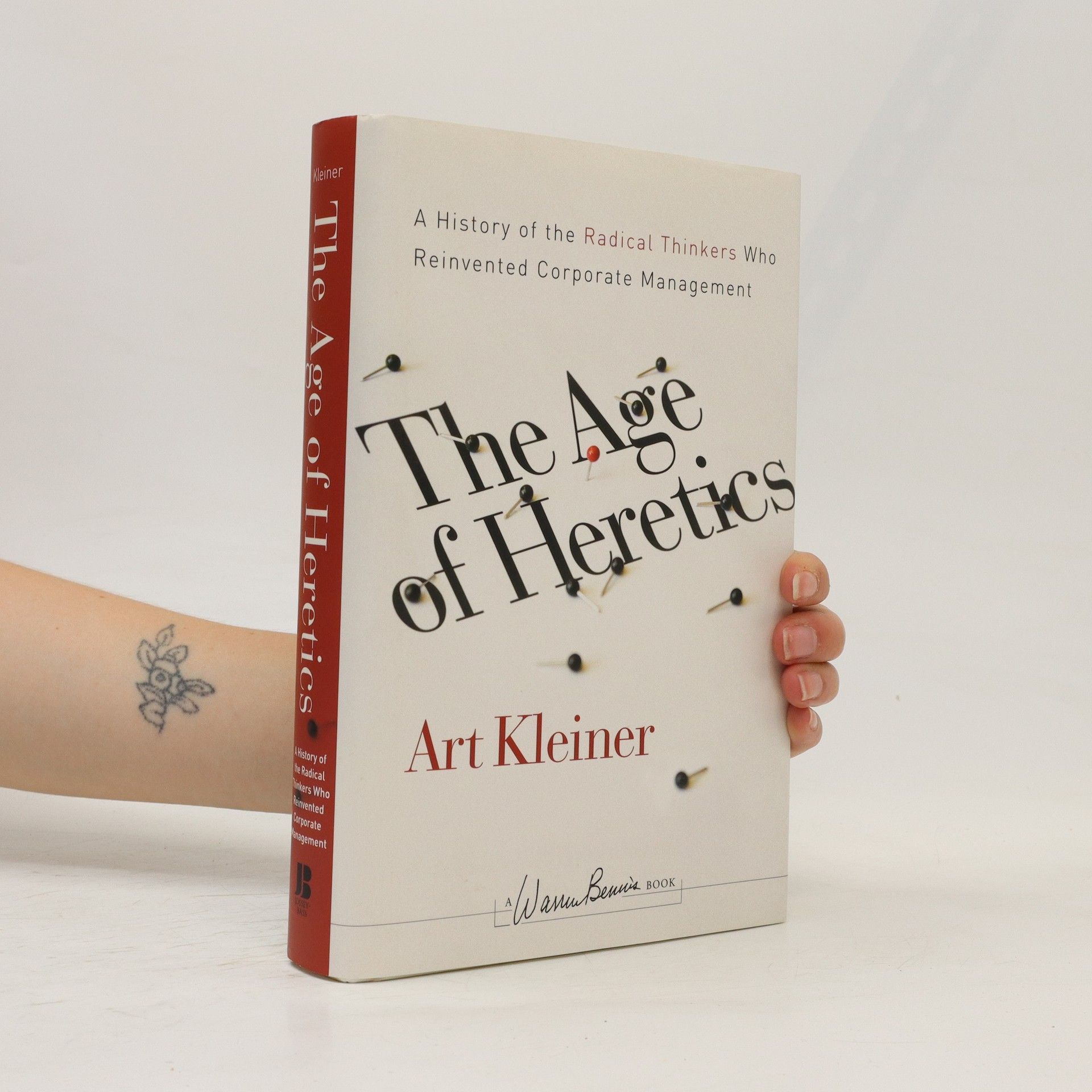Decadent Vegan Cakes
- 168 stránek
- 6 hodin čtení
This essential guide to plant-based cakes from popular blogger Charlotte Roberts offers readers delicious bakes ranging from traditional classics to exciting new flavour combinations.






This essential guide to plant-based cakes from popular blogger Charlotte Roberts offers readers delicious bakes ranging from traditional classics to exciting new flavour combinations.
Tells the story of human endeavour that laid out in all its grandeur and folly, drama and pain. This book reflects what now seems to be the inexorable rise of Asia and the increasingly troubled situation in the West.
In this second edition of his bestselling book, author Art Kleiner explores the nature of effective leadership in times of change and defines its importance to the corporation of the future. He describes a heretic as a visionary who creates change in large-scale companies, balancing the contrary truths they can’t deny against their loyalty to their organizations. The Age of Heretics reveals how managers can get stuck in counterproductive ways of doing things and shows why it takes a heretical point of view to get past the deadlock and move forward.
Kleiner gives readers clues about how to identify a Core Group's real mission by observing its day-to-day actions; listening to the fundamental message it sends employees; examining its management of new members; understanding the ideas that shape its policies about management, money, and the way the world works; and avoiding the taboos governing the way it operates."--Jacket.
7 Principles for Responsible Technology [Standard Large Print]
Focusing on the misuse of AI, this book highlights its devastating consequences, including wrongful arrests and denial of medical care. It presents seven actionable principles that businesses can implement to mitigate harm and promote ethical practices in AI usage. Through these principles, the author aims to guide organizations in fostering responsible AI development and application, ultimately preventing further injustices and promoting a more equitable society.
The misuse of AI has resulted in serious consequences, including wrongful arrests and even genocide. This book presents seven powerful principles that businesses can implement to mitigate harm. With examples from incidents like the Boeing 737 Max crash and Cambridge Analytica, it highlights how AI can do harm without accountability. Drawing on research from Columbia University and Intel Labs, the principles are designed to help harness AI for human benefit: 1. **Be Intentional About Risk** - Conduct cost-benefit analyses to ensure that short-term gains do not jeopardize others or your reputation. 2. **Open the Closed Box** - Allow all stakeholders to understand the logic and origins of AI systems. 3. **Reclaim Data Rights for People** - Empower individuals to control their personal data. 4. **Favor Loosely Coupled Architecture** - Redesign AI teams to encourage diverse thinking and adaptability. 5. **Confront and Question Bias** - Ensure algorithmic outcomes are ethical and fair for all affected. 6. **Hold Stakeholders Accountable** - Address barriers to effective technology regulation. 7. **Embrace Creative Friction** - Foster an environment of trust and psychological safety to advance responsible AI. This guide is essential for business leaders, technologists, regulators, and citizens aiming to unlock AI's potential responsibly.
'De klant komt op de eerste plaats' is een van de drie grote leugens uit het moderne bedrijfsleven. De andere twee zijn: 'we nemen beslissingen in het belang van onze aandeelhouders' en 'werknemers zijn ons belangrijkste kapitaal'.In dit boek gaat Art Kleiner uit van de veronderstelling dat in iedere organisatie een kerngroep (core group) bestaat van sleutelfiguren die er echt toe doen. de organisatie is continue bezig om de waargenomen behoeften en prioriteiten van deze kerngroep te vervullen. Dit is soms moeilijk te zien, omdat de aard en samenstelling van de kerngroep per organisatie verschillen, net als de mission statements en andere geformuleerde doelen die naar de buitenwereld worden gecommuniceerd. Maar alles wat de organisatie doet zoals klanten tevreden stellen, waarde creëren, producten en diensten leveren, talent van werknemers ontwikkelen en investeringen van aandeelhouders terugverdienen - komt op de tweede plaats. Op de eerste plaats komt het tevreden houden van de kerngroep.'Wie is nu eigenlijk de baas!' is bedoeld voor iedereen die in het dagelijks leven aanloopt tegen niet-rationele besluitvorming in organisaties en voor mensen die willen onderzoeken wie in de eigen organisatie tot de kerngroep behoort. Behalve nieuwe perspectieven biedt het boek veel praktische handvatten. Diagnostische oefeningen helpen de lezer bij zijn zoektocht naar de kerngroep in zijn eigen organisatie.